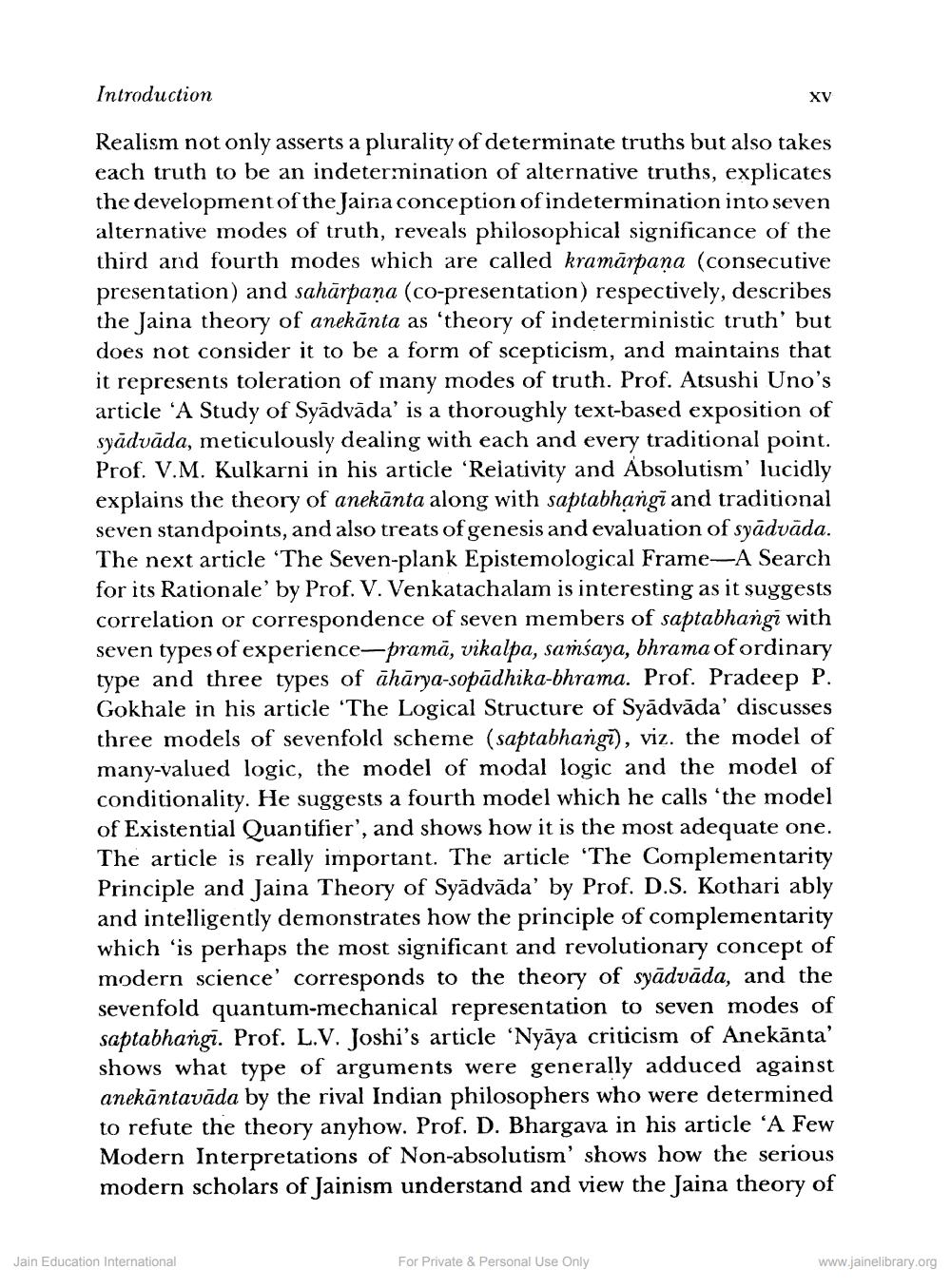________________
Introduction
XV
Realism not only asserts a plurality of determinate truths but also takes each truth to be an indetermination of alternative truths, explicates the development of the Jaina conception of indetermination into seven alternative modes of truth, reveals philosophical significance of the third and fourth modes which are called kramārpana (consecutive presentation) and sahārpana (co-presentation) respectively, describes the Jaina theory of anekānta as 'theory of indeterministic truth' but does not consider it to be a form of scepticism, and maintains that it represents toleration of many modes of truth. Prof. Atsushi Uno's article 'A Study of Syādvāda' is a thoroughly text-based exposition of syadvāda, meticulously dealing with each and every traditional point. Prof. V.M. Kulkarni in his article 'Relativity and Absolutism' lucidly explains the theory of anekānta along with saptabhangi and traditional seven standpoints, and also treats of genesis and evaluation of syādvāda. The next article 'The Seven-plank Epistemological Frame-A Search for its Rationale' by Prof. V. Venkatachalam is interesting as it suggests correlation or correspondence of seven members of saptabhangi with seven types of experience-pramā, vikalpa, samsaya, bhrama of ordinary type and three types of āhārya-sopādhika-bhrama. Prof. Pradeep P. Gokhale in his article 'The Logical Structure of Syādvāda' discusses three models of sevenfold scheme (saptabhangi), viz. the model of many-valued logic, the model of modal logic and the model of conditionality. He suggests a fourth model which he calls 'the model of Existential Quantifier', and shows how it is the most adequate one. The article is really important. The article 'The Complementarity Principle and Jaina Theory of Syādvāda' by Prof. D.S. Kothari ably and intelligently demonstrates how the principle of complementarity which is perhaps the most significant and revolutionary concept of modern science' corresponds to the theory of syādvāda, and the sevenfold quantum-mechanical representation to seven modes of saptabhangi. Prof. L.V. Joshi's article 'Nyāya criticism of Anekānta' shows what type of arguments were generally adduced against anekāntavāda by the rival Indian philosophers who were determined to refute the theory anyhow. Prof. D. Bhargava in his article 'A Few Modern Interpretations of Non-absolutism' shows how the serious modern scholars of Jainism understand and view the Jaina theory of
Jain Education International
For Private & Personal Use Only
www.jainelibrary.org




